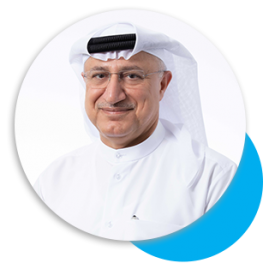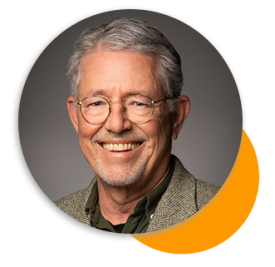
H.E. Amb. Dr. Abdulsalam Al Madani
Chairman of DIHAD Sustainable Humanitarian Organisation and Chairman of DISAB; PAM Roving Ambassador for the GCC Region
As we strive throughout our humanitarian platforms; the Dubai International Humanitarian Aid and Development Conference & Exhibition – DIHAD, to manage and direct all humanitarian actions towards creating a world that is more equitable and resilient, we make sure that we do not only provide temporary solutions to those who suffer from crisis and disasters, but also offer sustainable solutions where people can live happily within their families and communities for years to come.
In the face of unprecedented challenges, our collective determination to protect the vulnerable and build sustainable communities should remain our focus. Collaboration has always been the cornerstone of our progress, as we unite governments, organizations, and individuals, transcending borders and ideologies to forge partnerships that amplify our impact. In the future of humanitarian action, compassion will be our driving force, serving as a catalyst for positive change and inspiring a new generation of changemakers to join the noble quest of building a better world for all.
And while humanitarian actions are often thought of as a response to disasters and crisis, we at DIHAD look at the circumstances differently. We strive to foresee the humanitarian needs in the future in an aim to protect lives and livelihoods through taking solemn responsibility in humanitarian operations within affected areas and work on a sustainability strategy that outlines humanitarian efforts in the future.
There is no doubt that DIHAD has shaped the international humanitarian landscape and has been an instrumental part in the field of philanthropy where we provide a platform for global leaders in the field to connect, collaborate, and inspire one another to tackle the most pressing challenges we face in our missions to heal the world.
However, despite these overwhelming achievements, our mission is far from finished. More than 360 million people from around the world are still in need of humanitarian assistance and protection. Latest studies show that more than $55 billion is required to address everyone’s needs, however, only $8.5 billion is available. Moreover, the projected average investment for reaching the United Nations Sustainable Development Goals is between $5 to $7 trillion per year until the year 2030. Unless we unite and equally increase our efforts across all channels to meet these requirements, it will mark a devastating risk of global humanitarian efforts falling behind, costing us greater turmoil in the years ahead.
As we embark on this historic 20 years of remarkable solidarity, and under this year’s notable theme, ‘DIHAD 2004-2024: Humanitarian Diplomacy and a Journey to the Future,’ we repledge our commitments to sealing impactful relations and cooperation through advocacy, meaningful communication, and formal agreements that will influence the actions we take into the next generation. We live in a fast-paced society that requires cutting-edge technologies, tools, and solutions that transform the way aid is delivered and received. From drones that can distribute medical supplies in remote areas to virtual reality simulations that allow aid workers to experience crisis situations firsthand, we will showcase the future realm of the humanitarian sector and increase our efforts on a united front.
On behalf of the DIHAD Organisation, we thank all those who have helped and inspired change, and for their unwavering support that has shaped the essence of the DIHAD Conference and Exhibition, as we take honor in uplifting humanity with compassion and courage together.

H.E. Amb. Gerhard Putman-Cramer
CEO of DIHAD Sustainable Humanitarian Foundation and Director of DISAB; Ambassador, Permanent Delegation of PAM to the United Nations and other International Organisations in Geneva
Humanitarian diplomacy is the activity that aims at ensuring that all concerned with humanitarian aid act in the interests of the intended beneficiaries, this in accordance with acknowledged humanitarian principles, human rights and International Humanitarian Law. While exact definitions vary, the activity in question most often consists of any or all of the following: a dialogue, written communications, negotiations and mediation. It is oftentimes undertaken to ensure the following: access to those in need of assistance and/or protection; the necessary financial and logistical mechanisms for such assistance to take place; the security of those receiving the aid and of those charged with its delivery. It is often essential in ensuring there is coordinated humanitarian action, information sharing, advocacy and impartiality.
As assistance requirements are evidently ever-increasing, this possibly in contrast to the levels of resources made available to meet them, so is the importance of humanitarian diplomacy. While enhancing access to humanitarian assistance in so-called “complex emergencies” has always been a challenge, it is clear that the number of these emergencies is growing, and that their complexity is often further amplified by new actors and diverging priorities. Now it can be argued that humanitarian diplomacy is a contradiction in terms, diplomacy being essentially a search for compromise while humanitarian action is wholly principled. In actual fact, a compromise arrived at on account of humanitarian diplomacy often enables principled actions to be effectively implemented. Special interests taken into account at the time of negotiations may well ensure the sustainability of arrangements arrived at. Then there is also the leverage of public opinion as well as support from other networks (which may well be the result of previous/parallel humanitarian diplomacy efforts).
Generally speaking, in regard to most countries who are prominent promoters of humanitarian engagement, we know that the humanitarian diplomacy activities they undertake are often motivated not only by values and principles, but also by geopolitics and economic interests. Looking at the UAE, one notes that since 2004 (the year Dubai first hosted the DIHAD Conference and Exhibition), the country not only has become a very generous donor in terms of both development assistance and humanitarian aid (it is in fact the world’s largest per capita aid provider), it has made the provision of aid an essential part of its foreign policy and indeed of its public image.
To illustrate agreements resulting from successful humanitarian diplomacy, we need only read our dailies or switch on our televisions; the so-called “grain agreement” in the Black Sea and the cease-fire in Ethiopia, which currently enables all parties in the conflict to receive urgently needed assistance, are two examples which underscore the vital importance of these initiatives.
At this time in the world’s history, we are collectively going through a growing multitude of crises. Climate Change seems to be intensifying both the number and the severity of natural disasters. The ever-increasing number of humanitarian emergencies cause us – at a time of financial instability and competing demands on what we hoped to be recovering economies – to also struggle with, inter alia, questionable energy sources, decreasing food supplies and ever-increasing migration flows.
It is in this light, while looking back at the themes of DIHAD events held over these last 20 years (and wanting to revisit some with new insights), that the International Scientific Advisory Board of the Foundation has decided to have, as the theme of DIHAD 2024 (our 20th edition):
“DIHAD 2004-2024: Humanitarian Diplomacy and a Journey to the Future”
Sessions will focus on Humanitarian Diplomacy in relation to Access and Human Security; to Climate Change; to People on the Move and to Global Health Challenges. Moreover, we will attempt to identify the links between Humanitarian Diplomacy, Leadership and New Actors as well as how Humanitarian Diplomacy can provide for a greater focus on the role and potential of both Women and Youth.
It is indeed of interest to examine whether humanitarian diplomacy, now further developed and more widely utilized, is making a real difference in the above-mentioned contexts. It is clear that, since 2004, we have collectively been changing our aid-related “methodologies”, this now undoubtedly requiring re-defined systemic structures and a possibly less HQ-guided country-based priority-setting and coordination mechanism, thus enabling specific local requirements to get more immediate and more effective attention.
At DIHAD 2024 we will once again gather friends and colleagues from national government authorities, international and non-governmental organizations, the Red Cross/Red Crescent Movement, foundations and charities, academic institutions, the media and the private sector. As in all previous editions of the Conference, we will attempt to come up with a number of actionable agreed conclusions and recommendations.
On behalf of the International Scientific Advisory Board of the DIHAD Foundation, I am very pleased to invite you to attend the event’s 20th edition. We much look forward to welcoming you and to thank, on that occasion, all who have actively contributed to the acknowledged success of DIHAD events these last 20 years. We will also seize the opportunity to review and share the highlights of the Foundation’s activities, as these have developed.
Each edition of the unique annual DIHAD event, held under the patronage of H.H. Sheikh Mohammed Bin Rashid Al Maktoum, Vice-President and Prime-Minister of the UAE and Ruler of Dubai, highlights different aspects of our collective humanitarian aid and development endeavors. This year, we will try to coalesce landmark themes of events gone by, while introducing new perspectives to these through the prism of humanitarian diplomacy, thereby determined to further reinforce our combined ability to face the challenges of tomorrow. Moreover, the selected theme and related presentations as well as all interaction within and in the margins of the event, continue to enhance the knowledge that humanitarian and development actors have about each other, thereby ensuring greater understanding and clarity in regard to respective roles, capacities and mandates and further reinforcing the notion of effective coordinated action.
DIHAD 2024 promises to be a memorable event (and anniversary)!


